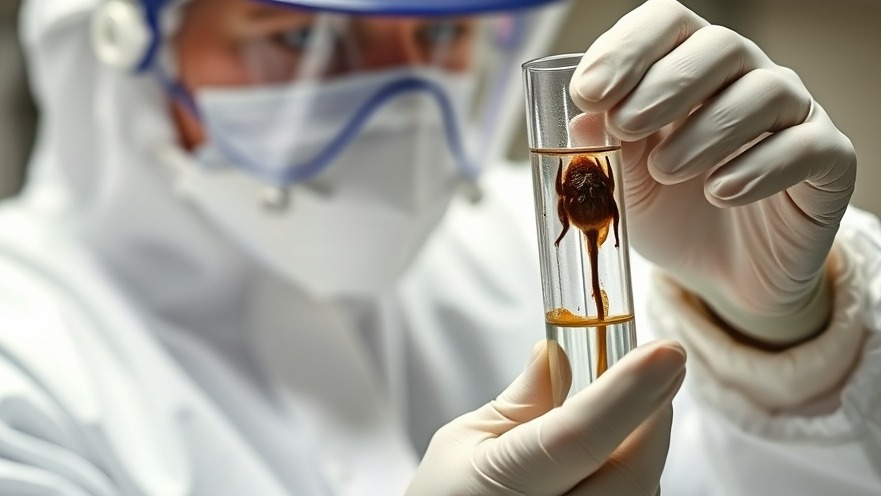
Breaking New Ground in Pandemic Preparedness
As the threat of zoonotic diseases continues to disrupt global health ecosystems, scientists are excited about a groundbreaking development: a comprehensive bat organoid platform capable of revolutionizing our approach to pandemic preparedness. Developed by a research team at the Institute for Basic Science (IBS) in Korea, this innovative system includes 3D "mini-organs" derived from common insect-eating bat species, significantly advancing our understanding of how bat-borne viruses interact within their hosts.
Understanding the Importance of Bats
Bats are notorious as natural reservoirs for many viruses that can infect humans, with more than 75% of new infectious diseases originating from animal sources. Notable examples include COVID-19, MERS, and Hantavirus. The challenge lies in studying these viruses in their natural hosts—until now, research has been limited by the lack of appropriate biological tools that can simulate bat physiology accurately.
The Innovative Organoid Platform
This novel platform consists of organoids representing the trachea, lungs, kidneys, and intestines from five bat species found in Asia and Europe, creating a diverse biological framework. By enabling researchers to observe the detailed interactions of zoonotic viruses in real-time, this platform marks a significant leap forward in virology and infectious disease research.
Testing Methods and Findings
The new approach allows for direct testing of various key viruses, including SARS-CoV-2 and MERS-CoV, to observe their infection patterns across different bat species and their organs. The researchers discovered that viruses exhibit unique infectious behaviors—for instance, a virus may thrive in a bat's lungs while being unable to infect its kidneys. Such findings provide crucial insights for understanding virulence and the conditions that lead to zoonotic transmission to humans.
Implications for Public Health
The significance of this research extends beyond academic curiosity; it has vital implications for public health. Utilizing fecal sample testing alongside organoid studies can help researchers detect new viruses quickly and develop potential therapeutic interventions. Moreover, a globally accessible biobank of bat-derived organoids could serve as a critical resource for researchers around the world.
Future Directions: Enhancing Pandemic Preparedness
This platform not only offers a promising way to understand the mechanics of viral infections but could also pave the way for drug testing in a controlled environment. As the world grapples with the implications of pandemics and emerging diseases, such innovative technologies will be essential for proactive healthcare responses, including vaccine development and treatment strategies.
Actionable Insights for Health Practitioners
As concierge health practitioners, staying informed about advancements in pandemic preparedness is crucial. Now is the time to consider how these research developments could impact your practice and your patients' health outcomes. Engaging with advancements like the bat organoid platform can enable practitioners to offer more tailored advice and prepare better for potential viral outbreaks.
Call To Action: Stay Ahead of the Curve
In a rapidly evolving healthcare landscape, it's essential to keep abreast of the latest scientific breakthroughs. By understanding the implications of research like the comprehensive bat organoid platform, you can make informed decisions that benefit your practice and your patients. Stay tuned for updates in pandemic preparedness technology to enhance your practice's resilience against infectious diseases.
 Add Row
Add Row  Add
Add 




Write A Comment